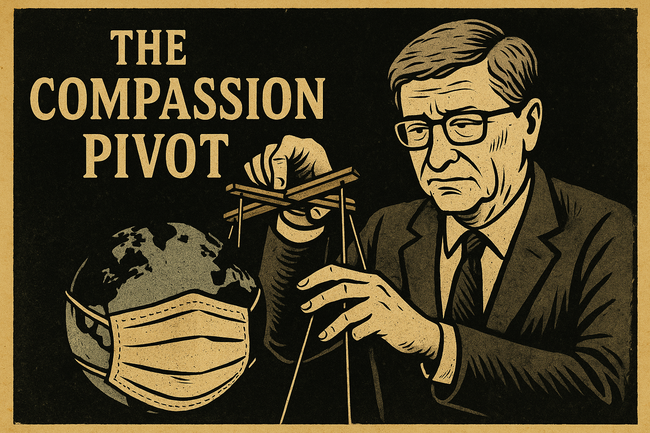Abstract
Bayman's Paradox revolves around the Bayman's detachment or resistance, willful ignorance toward governance, compounded by a lack of civic knowledge, and the lingering influence of a long-standing belief that government support will always be available to provide solutions. Additionally, there's a tendency to defer decision-making to outside leaders, much like a committee that feels unable to act independently and must rely on a consultant, rather than seeking solutions within their own community.
The Local Paradox arises from rural Newfoundland's focus on tradition and survival, often disregarding governance, even though it impacts their world. The Bayman holds onto a more independent, self-reliant identity, yet is shaped by a historical reliance on outside leadership to resolve issues, deepening their disengagement from governance.
Introduction
Rural fishing communities in Newfoundland and Labrador, has long been associated with independence and self-reliance. However, the Bayman’s Paradox illustrates a deep tension between this identity and their detachment from governance. Historically, the Bayman has relied on external leadership for solutions, fostering a culture of civic disengagement and ignorance toward governance (The Canadian Encyclopedia, 2023; Island Studies, 2023).
This disconnection becomes especially problematic when new global policies—such as the Paris Accord—are introduced to address modern issues like climate change. Combined with social pressure and social conformity, these policies further marginalize the Bayman, who is unable to fully comprehend or challenge them.
This paper explores how the Paris Accord and other global governance structures, peer pressure, and social conformity affect the people of rural Newfoundland. The focus is on how these forces contribute to the community's exploitation due to their lack of civic knowledge and resistance to new concepts.
Key Concepts
1. Governance and the Historical Roots of the Bayman’s Detachment
The Bayman’s resistance to governance is rooted in historical contexts, where external powers imposed leadership and decision-making from outside the community (Canadian Encyclopedia, 2023). This led to a passive relationship with governance, where the Bayman developed an expectation that solutions would be provided by outsiders (Island Studies, 2023).
However, this detachment from governance is shaped not only by tradition but also by Newfoundland’s economic vulnerability and dependency on external aid, particularly since its 1949 Confederation with Canada. These factors, alongside federal assistance programs, have contributed significantly to the governance challenges in rural Newfoundland, not merely a reliance on tradition (SpringerLink, 2023).
2. The Impact of the Paris Accord: Global Governance and Local Marginalization
The Paris Accord represents a global effort to combat climate change through policy changes and international cooperation. However, the Bayman’s limited civic engagement means that these global agreements are often perceived as distant and irrelevant, despite their significant impact on local communities (Abbott et al., 2016).
The Postcolonial Theory helps explain how external governance without local input perpetuates this detachment. While international agreements like the Paris Accord aim to include stakeholder consultation, the effectiveness of such consultation in rural and marginalized areas like Newfoundland remains a topic of debate (SpringerLink, 2019).
3. Peer Pressure and the Dynamics of Social Conformity
The Asch social conformity experiments demonstrated that individuals are likely to conform to group opinion, even when it conflicts with their own beliefs or understanding (Asch, 1956). In the Bayman’s context, social conformity is compounded by both internal and external pressures, leading to compliance without full comprehension of policies like the Paris Accord.
This mirrors how international organizations rely on "legitimation" processes to achieve compliance through perceived authority, rather than meaningful participation (SpringerLink, 2023).
4. The Local Paradox: Tradition, Survival, and Governance
The Local Paradox arises from the Bayman’s focus on tradition and survival, often disregarding governance despite its impact on their livelihoods. Critical Governance Theory highlights how external power structures intensify this disengagement (Island Studies, 2023).
5. Governance and Exploitation through Ignorance
Ultimately, governance detachment, peer pressure, and social conformity result in the marginalization of rural Newfoundland communities. Social Learning Theory suggests that the rural Newfoundland's limited exposure to new ideas perpetuates their civic ignorance, making them vulnerable to exploitation by governance structures (Bandura, 1977).
Discussion
The Bayman’s Paradox illustrates a deep and complex issue within rural governance. While the Bayman holds tightly to an identity of self-reliance and tradition, this detachment from governance makes them susceptible to exploitation by global and external forces (The Canadian Encyclopedia, 2023).
However, this phenomenon is not unique to Newfoundland. Rural communities across the world face similar challenges when external governance structures impose policies without meaningful local engagement (Abbott et al., 2016). Studies on global governance and postcolonialism, for instance, highlight the tendency of such communities to resist external influences, not only out of tradition but also because these policies are often perceived as disconnected from local realities (SpringerLink, 2019).
Moreover, the social conformity exhibited by the Bayman is reflective of broader patterns seen in rural societies where group cohesion is paramount (Asch, 1956). These communities are often caught between the desire to maintain their traditions and the need to adapt to global pressures. This creates tension that perpetuates their disengagement from governance and civic life (Bandura, 1977).
The implications of this disengagement are significant. Without a voice in governance, the Bayman is left vulnerable to policies that may not serve their best interests, further exacerbating their marginalization. In practical terms, this dynamic may hinder the implementation of global policies like the Paris Accord, as local resistance grows not merely out of confusion, but out of a lack of leadership and meaningful participation in governance (SpringerLink, 2019).
Conclusion
This paper argues that the Bayman’s ignorance toward governance and global concepts like the Paris Accord is not merely a product of historical and environmental forces but is also willful when they are confronted with external information that challenges their worldview. The Bayman’s strong attachment to tradition and self-reliance makes them resistant to new ideas, particularly when those ideas come from outside governance structures perceived as foreign or irrelevant (Island Studies, 2023).
However, as external pressures—such as global environmental policies—continue to affect their communities, the lack of effective local leadership begins to show. When the Bayman’s own solutions prove insufficient to address modern challenges, their reliance on outside help increases, despite their initial resistance (The Canadian Encyclopedia, 2023). This reliance only deepens their disengagement from governance, as they conform to external policies out of necessity, not understanding (Abbott et al., 2016).
References
- The Canadian Encyclopedia. (2023). Politics of Newfoundland and Labrador.
- Island Studies. (2023). Newfoundland: Between Colonial Paternalism and Self-sufficiency.
- SpringerLink. (2023).
- Abbott, K. W., Genschel, P., Snidal, D., & Zangl, B. (2016). Measuring institutional overlap in global governance.
- SpringerLink. (2019).
- Asch, S. E. (1956). Studies of independence and social conformity: A minority of one against a unanimous majority.
- SpringerLink. (2023).
- Bandura, A. (1977). Social Learning Theory. Prentice-Hall.



